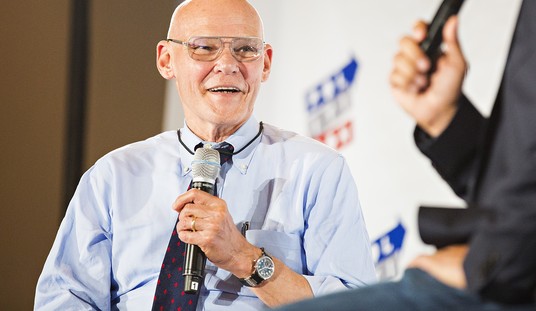Many (including me) were predicting that Newt’s space-policy political fiasco would be in the rear-view mirror as the campaign moved beyond Florida. Alas, at least for space enthusiasts if not late-night comedians, it remains in the news, and as an object of continuing mockery and ridicule.
While originally it was only the Romney campaign that was cynically using it as a political cudgel against his opponent (and he continued to do so in Nevada), on Friday Senator Rick Santorum started piling on as well, making it the basis of a sixty-second ad. The night of the Nevada caucuses, which Romney won handily, Saturday Night Live spoofed it as well, in their opening skit.
Newt, naturally, has been on the defensive throughout, trying to explain himself on Meet The Press the next morning:
“I didn’t propose any additional spending,” Gingrich said, noting that Russia, China and India are aggressively focused on their space programs. He believes there needs to be fundamental reform of the U.S. space program that engages the private sector.
A large part of the criticism has been a vigorous massacre of a legion of space-policy straw men, perhaps the most egregious of which is the accusation that Newt’s plans would cost half a trillion dollars, a grossly inflated figure based on a NASA study performed over two decades ago during the first Bush administration, and a conservative conventional-wisdom assessment from John Logsdon, former head of the Space Policy Institute. This is ironic, because Newt has long proposed fundamental NASA reforms that would dramatically reduce the costs of human spaceflight.
At this point, if Newt wants to redeem himself on this issue, he needs to reboot it with another speech, and not an off-the-cuff stream of consciousness that got him into trouble (as it so often does) at the Cape, but an actual prepared speech, laying out his vision, its benefits, and the actual estimated costs. For his consideration, I offer up the speech that I would give if I were him (or at least, in his current political position).
* * * * * * * * * * * * *
There has been a great deal of controversy in the last few days on a subject that, in this country, should have been fairly uncontroversial — the greatness of America and its ability to achieve great things. Ever since I gave a speech on my vision for America in space a couple weeks ago, it has been mocked and completely mischaracterized, either out of ignorance, malice, or both, and in doing so, those so mocking have only revealed their own small-minded pedestrian bean-counting lack of both vision for this nation, and their lack of knowledge of either the cost or benefits of opening up space to humanity. Mitt Romney has clearly never given this subject a moment’s thought. To the degree that his campaign has articulated a purpose for space at all, or provided a policy other than getting “top, men,” he has said that the purpose of human spaceflight is to address, quote: “the ‘existential’ objective of understanding the universe and its effects on the Earth, such as climate or the possibility of a ‘catastrophic event’; commercial; the health and well-being of citizens; and defense.”
Note that not a single one of those goals requires sending humans into space. The last three are so vague as to be meaningless in the context of a space program. What does the word “commercial” mean? Who can argue that “the health and well-being of citizens” isn’t a worthy goal, but how does humans in space play a role? And Governor Romney, Dwight Eisenhower established a civil space agency, separate from the Department of Defense, for a reason. We already have a program for defense in space — it is run by the Air Force and other defense agencies, which have as much money for it as NASA’s total budget, so that makes no sense as a purpose for the space agency.
The first straw man that my opponents accuse me of is wanting NASA to build a lunar colony of thousands of people. Anyone who listened to my speech in Florida knows I never proposed such a thing. I was simply expressing an aspiration to see it happen, and if it did, I proposed that it be eligible for statehood. If it occurs, it will be because it is paying for itself, perhaps by providing goods and services to the space-based economy that will develop off planet as the cost of access to orbit comes down in the coming decades from the growing competitive commercial transportation providers. I was simply proposing that NASA establish a base by 2020, the same thing that George W. Bush proposed, and that Governor Romney supported the last time he ran for president. Such a base would prove out the concepts of the utilization of resources on the moon, such as water for life support and propellants, and other materials, that would allow a reduction in the cost of both getting there and living there, and enable the development of a later colony that could pay for itself.
Now as to the cost of that initial lunar base, recently, the Romney campaign ignorantly stated that my plan would cost half a trillion dollars, when it can’t even coherently articulate what my plan is. That number, as far as I can tell, was one that has been bandied about for decades, from the late nineties, when NASA, having been told to tell George Herbert Walker Bush how much going back to the moon would cost, came up with a gargantuan plan that would justify every hobby shop and bureaucracy existing at the agency. It’s surprising that it was only half a trillion. It was so egregious, in fact, that NASA administrator Richard Truly was fired by the Bush White House. We know that things can be done much less expensively. For example, shortly after Truly’s firing, Mike Griffin, one of Governor Romney’s “top men,” as a former associate administrator, came up with a plan called First Lunar Outpost, which he himself estimated would only cost thirty-three billion dollars in 2004 dollars. Now that’s a long way from half a trillion.
Now, it’s certainly possible to spend $200 billion on a lunar base. As NASA administrator in the last administration, Mike Griffin apparently changed his mind, because he was in fact proposing to do exactly that, by building a new rocket that NASA doesn’t need to get back to the moon. So I’m a little puzzled as to why Governor Romney hired as an adviser someone who proposed to do something for which the governor said the night before he would fire someone.
But it can be done even more cheaply than Mike Griffin proposed back in the nineties, because he assumed that NASA would do it business as usual, paying for labor and materials instead of performance. We’ve seen recently that when private enterprise is engaged with the proper incentives, costs can come down dramatically. Over the last several years, Space Exploration Technologies has developed two all-new commercial rockets and a returnable capsule for a total cost of less than a billion dollars, and a total cost to the taxpayer of about three-hundred million. Conventional Air-Force/NASA cost models would have predicted it costing anywhere from four to ten times that much. So let’s stop throwing around these nonsensical numbers of hundreds of billions of dollars, which unlike Mike Griffin as NASA administrator, I never proposed that we spend, because we don’t need to spend that much. Everything I’ve proposed doing can be done with the existing NASA budget, if we just spend it smarter.
So, suppose that I’m right, and we can do it for just a few billion dollars? Is there a return on investment (a question that I notice that putative businessman Governor Romney didn’t even ask when he proposed firing anyone who wanted to build a lunar base the other night)? What benefits can uniquely justify sending humans into space to live?
Obviously, I believe that there is an ROI, but you don’t find it in Governor Romney’s list. Simply, it is to expand humanity into the cosmos, as George W. Bush proposed in 2004, and we do that for at least two reasons.
First, there are technologies coming along that truly have the potential to wipe out humanity, if not life on this planet, and even ignoring the potential of artificial catastrophes, we know that impacts from asteroids and comets have been devastating in the past, and can be expected to be in the future, unless we develop the means to divert them. For all we know, we are the only life in the universe, and it would be a tragedy if it were to be extinguished because we foolishly kept all our eggs in a single planetary basket.
But there’s another reason, unique to the American experiment. Someone is going to settle space. The Chinese are not rushing, but they clearly are laying plans. The question is, what kind of values do we want off planet? Do we want to expand the American ideals of liberty and individualism beyond earth, or do we want the off-planet population, which will eventually exceed that on earth given the abundance of material resources in the solar system, to only speak a different language, only be a different culture? This nation was founded because it was a New World, in which the old ways of thinking in Europe could be cast off to create a new nation conceived in liberty and not serfdom. Should someday that experiment fail here, it is important to have other laboratories in other places in which it can be revived or revised, so that not just our lives, but our values are preserved for posterity. I believe that’s important.
I am not proposing that the taxpayer spend trillions of dollars on another government space program. I am instead offering an affordable vision of how to open the next, and final frontier, the only real justification for sending humans into space at all. I’m offering an opportunity to not just be government astronauts, but for those who simply want to go to seek their muse and fortune, on the principles of free markets and individualism that made this nation great. And I am offering to do so in just the way that this great nation was founded and developed, using existing, or perhaps even smaller budgets than those we are currently spending on NASA that keep it unaffordable and closed to all but a few chosen government employees. I continue to await my opponents’ visions, but if they can’t come up with one on their own, I hope that they will at least stop mindlessly denigrating and mischaracterizing mine for crude political purposes, and that at least on this transcendental issue, they can transcend the pathetic and sorry nature of this so-called debate.









Join the conversation as a VIP Member